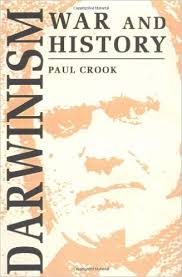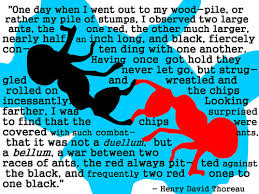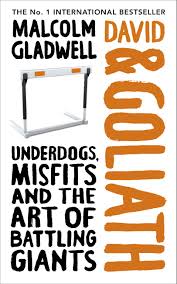What Would Darwin Say about Terrorists Today?
 On November 24, 1859, Charles Darwin’s monumental book on evolution, On the Origin of Species by Means of Natural Selection, or the Preservation of Favoured Races in the Struggle for Life, was published. It landed in a Christian world already severely challenged by godless ideas from the French Revolution–and Karl Marx’s Communist Manifesto of 1848. Throw in the deists from the American Revolution who were loath to mention Jesus by name. Hence the Victorian antipathy toward scientific thinking, with conservatives quickly cobbling together a retrograde stubbornness.
On November 24, 1859, Charles Darwin’s monumental book on evolution, On the Origin of Species by Means of Natural Selection, or the Preservation of Favoured Races in the Struggle for Life, was published. It landed in a Christian world already severely challenged by godless ideas from the French Revolution–and Karl Marx’s Communist Manifesto of 1848. Throw in the deists from the American Revolution who were loath to mention Jesus by name. Hence the Victorian antipathy toward scientific thinking, with conservatives quickly cobbling together a retrograde stubbornness.
Yet science claims to describe the world as it is, something the Bible did as well in Genesis, but based on what was “state of the art” understanding at the time. “My theories explain the world that God made,” we can almost hear Darwin argue, “but I’ve merely upgraded them as we look more closely at the Creation.” Few scientists today would argue that our understanding of the natural world is fixed rather than temporary. After all, an eternity of new interpretations and discoveries stretches into the future.
The religious world in 1859 was caught off guard by the sudden appearance of Darwin’s Origin, but isn’t it similar to what’s unfolding in Europe today, with the desperate invasion of refugees and the havoc that just a handful of terrorists can wreak? Both Islam and Christianity hark back to an ancient world now being quickly drowned by secular forces. The Friday the 13th attack at the Bataclan in Paris is emblematic: instead of operetta by Jacques Offenbach, the theater became a party venue for the Eagles of Death Metal concert. A banner for the rock band might have read “licentiousness,” but the word is too revealing to be used. While Christians politely gripe from the pulpit, ISIS has demonstrated that it will take the fight to the streets.
It is a do or die time for the Sunnis, with suicide bombers lining up to sacrificially “make a difference.” To them, moderation and democracy mean only a slow death and cultural annihilation. After all, the aim of secularists is to destroy religions from within, unwittingly gutting them with government control and material diversions. European churches are becoming vacant or worse.
 In his book Darwinism, War and History: The Debate over the Biology of War from the ‘Origin of Species’ to the First World War, Paul Crook examines the centrality of Darwin to the wars and struggles that have always defined human nature. Like biologist E. O. Wilson, Crook believes that reality is reality and can be ignored only to our detriment, since hoodwinking and denial only cloud our thinking and prevent us from sizing up an enemy. So how can more liberal-friendly notions about peace and cooperation be injected into the conversation?
In his book Darwinism, War and History: The Debate over the Biology of War from the ‘Origin of Species’ to the First World War, Paul Crook examines the centrality of Darwin to the wars and struggles that have always defined human nature. Like biologist E. O. Wilson, Crook believes that reality is reality and can be ignored only to our detriment, since hoodwinking and denial only cloud our thinking and prevent us from sizing up an enemy. So how can more liberal-friendly notions about peace and cooperation be injected into the conversation?
 Wilson’s recent documentaries on PBS pointed to ants and bees as a natural model of social harmony. He admits that he was stung by 1960s demonstrators who accused him of being politically incorrect. In contrast, Thoreau’s “Battle of the Ants” episode in Walden takes us back to empirical observation as Darwin would have known it. It’s been common to describe the German Nationalist Socialists of World War II as having a hive-like emphasis on the all-powerful state in opposition to selfish individuality.
Wilson’s recent documentaries on PBS pointed to ants and bees as a natural model of social harmony. He admits that he was stung by 1960s demonstrators who accused him of being politically incorrect. In contrast, Thoreau’s “Battle of the Ants” episode in Walden takes us back to empirical observation as Darwin would have known it. It’s been common to describe the German Nationalist Socialists of World War II as having a hive-like emphasis on the all-powerful state in opposition to selfish individuality.
 Judging from his title David and Goliath: Underdogs, Misfits, and the Art of Battling Giants, Malcolm Gladwell appears to offer a primer for insurgencies like ISIS, especially knowing that the Holy Lands once occupied much of the same landscape now held by Muslims. Yes, David and Goliath were warriors to the max, and the Bible is also a book about ancient warfare. But Gladwell turns the body of the book into a soft application that easily resonates with familiar race advocacy on nightly news broadcasts: how to proceed if you are a social underdog.
Judging from his title David and Goliath: Underdogs, Misfits, and the Art of Battling Giants, Malcolm Gladwell appears to offer a primer for insurgencies like ISIS, especially knowing that the Holy Lands once occupied much of the same landscape now held by Muslims. Yes, David and Goliath were warriors to the max, and the Bible is also a book about ancient warfare. But Gladwell turns the body of the book into a soft application that easily resonates with familiar race advocacy on nightly news broadcasts: how to proceed if you are a social underdog.
Meanwhile ISIS and other terrorist groups are writing their own field manual on “Underdogs, Misfits, and the Art of Battling Giants” knowing that we would rather express hatred of them than attempt to understand their tactics and strategies.
 On November 24, 1859, Charles Darwin’s monumental book on evolution, On the Origin of Species by Means of Natural Selection, or the Preservation of Favoured Races in the Struggle for Life, was published. It landed in a Christian world already severely challenged by godless ideas from the French Revolution–and Karl Marx’s Communist Manifesto of 1848. Throw in the deists from the American Revolution who were loath to mention Jesus by name. Hence the Victorian antipathy toward scientific thinking, with conservatives quickly cobbling together a retrograde stubbornness.
On November 24, 1859, Charles Darwin’s monumental book on evolution, On the Origin of Species by Means of Natural Selection, or the Preservation of Favoured Races in the Struggle for Life, was published. It landed in a Christian world already severely challenged by godless ideas from the French Revolution–and Karl Marx’s Communist Manifesto of 1848. Throw in the deists from the American Revolution who were loath to mention Jesus by name. Hence the Victorian antipathy toward scientific thinking, with conservatives quickly cobbling together a retrograde stubbornness. In his book Darwinism, War and History: The Debate over the Biology of War from the ‘Origin of Species’ to the First World War, Paul Crook examines the centrality of Darwin to the wars and struggles that have always defined human nature. Like biologist E. O. Wilson, Crook believes that reality is reality and can be ignored only to our detriment, since hoodwinking and denial only cloud our thinking and prevent us from sizing up an enemy. So how can more liberal-friendly notions about peace and cooperation be injected into the conversation?
In his book Darwinism, War and History: The Debate over the Biology of War from the ‘Origin of Species’ to the First World War, Paul Crook examines the centrality of Darwin to the wars and struggles that have always defined human nature. Like biologist E. O. Wilson, Crook believes that reality is reality and can be ignored only to our detriment, since hoodwinking and denial only cloud our thinking and prevent us from sizing up an enemy. So how can more liberal-friendly notions about peace and cooperation be injected into the conversation?  Wilson’s recent documentaries on PBS pointed to ants and bees as a natural model of social harmony. He admits that he was stung by 1960s demonstrators who accused him of being politically incorrect. In contrast, Thoreau’s “Battle of the Ants” episode in Walden takes us back to empirical observation as Darwin would have known it. It’s been common to describe the German Nationalist Socialists of World War II as having a hive-like emphasis on the all-powerful state in opposition to selfish individuality.
Wilson’s recent documentaries on PBS pointed to ants and bees as a natural model of social harmony. He admits that he was stung by 1960s demonstrators who accused him of being politically incorrect. In contrast, Thoreau’s “Battle of the Ants” episode in Walden takes us back to empirical observation as Darwin would have known it. It’s been common to describe the German Nationalist Socialists of World War II as having a hive-like emphasis on the all-powerful state in opposition to selfish individuality. Judging from his title David and Goliath: Underdogs, Misfits, and the Art of Battling Giants, Malcolm Gladwell appears to offer a primer for insurgencies like ISIS, especially knowing that the Holy Lands once occupied much of the same landscape now held by Muslims. Yes, David and Goliath were warriors to the max, and the Bible is also a book about ancient warfare. But Gladwell turns the body of the book into a soft application that easily resonates with familiar race advocacy on nightly news broadcasts: how to proceed if you are a social underdog.
Judging from his title David and Goliath: Underdogs, Misfits, and the Art of Battling Giants, Malcolm Gladwell appears to offer a primer for insurgencies like ISIS, especially knowing that the Holy Lands once occupied much of the same landscape now held by Muslims. Yes, David and Goliath were warriors to the max, and the Bible is also a book about ancient warfare. But Gladwell turns the body of the book into a soft application that easily resonates with familiar race advocacy on nightly news broadcasts: how to proceed if you are a social underdog.